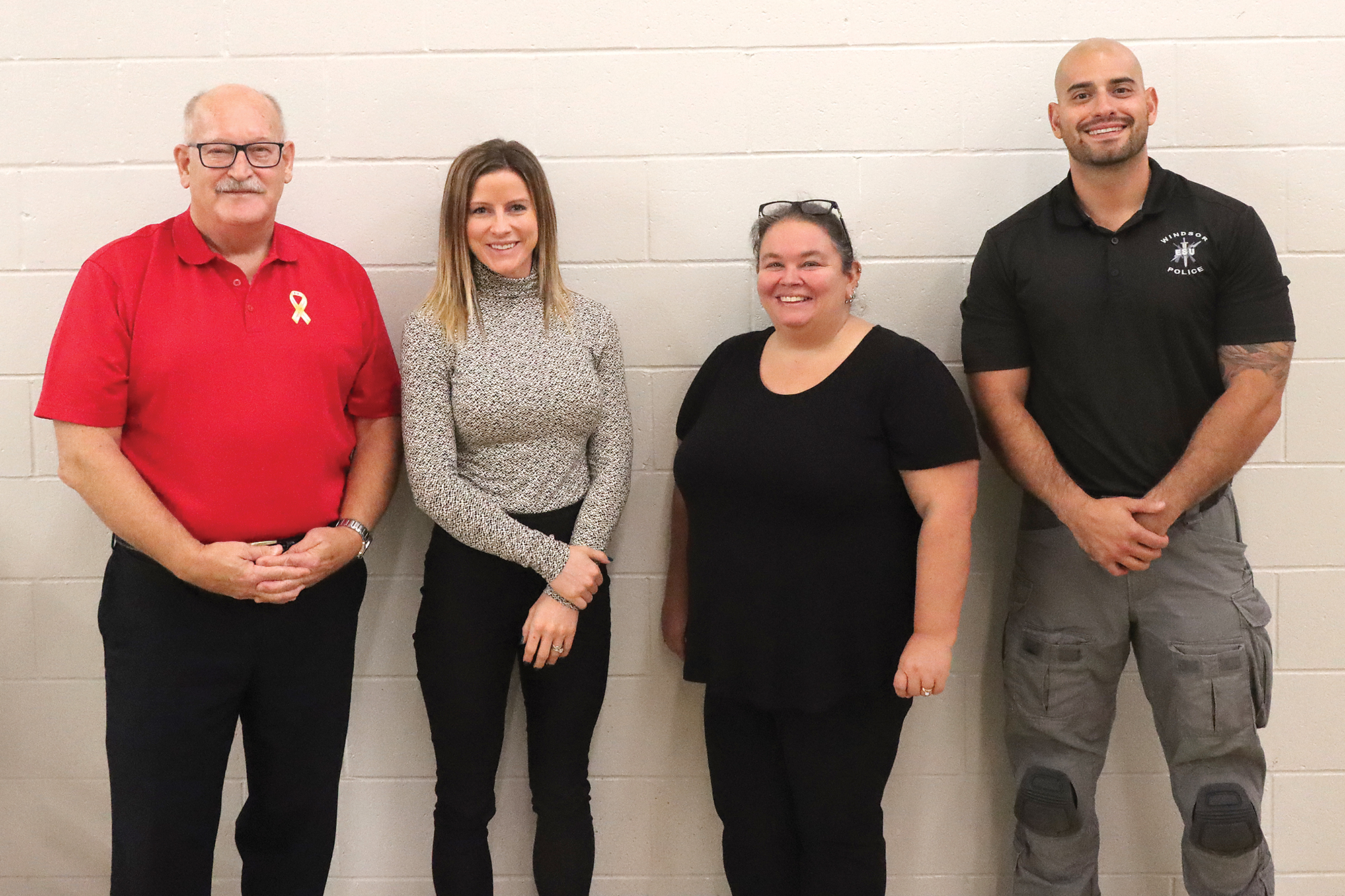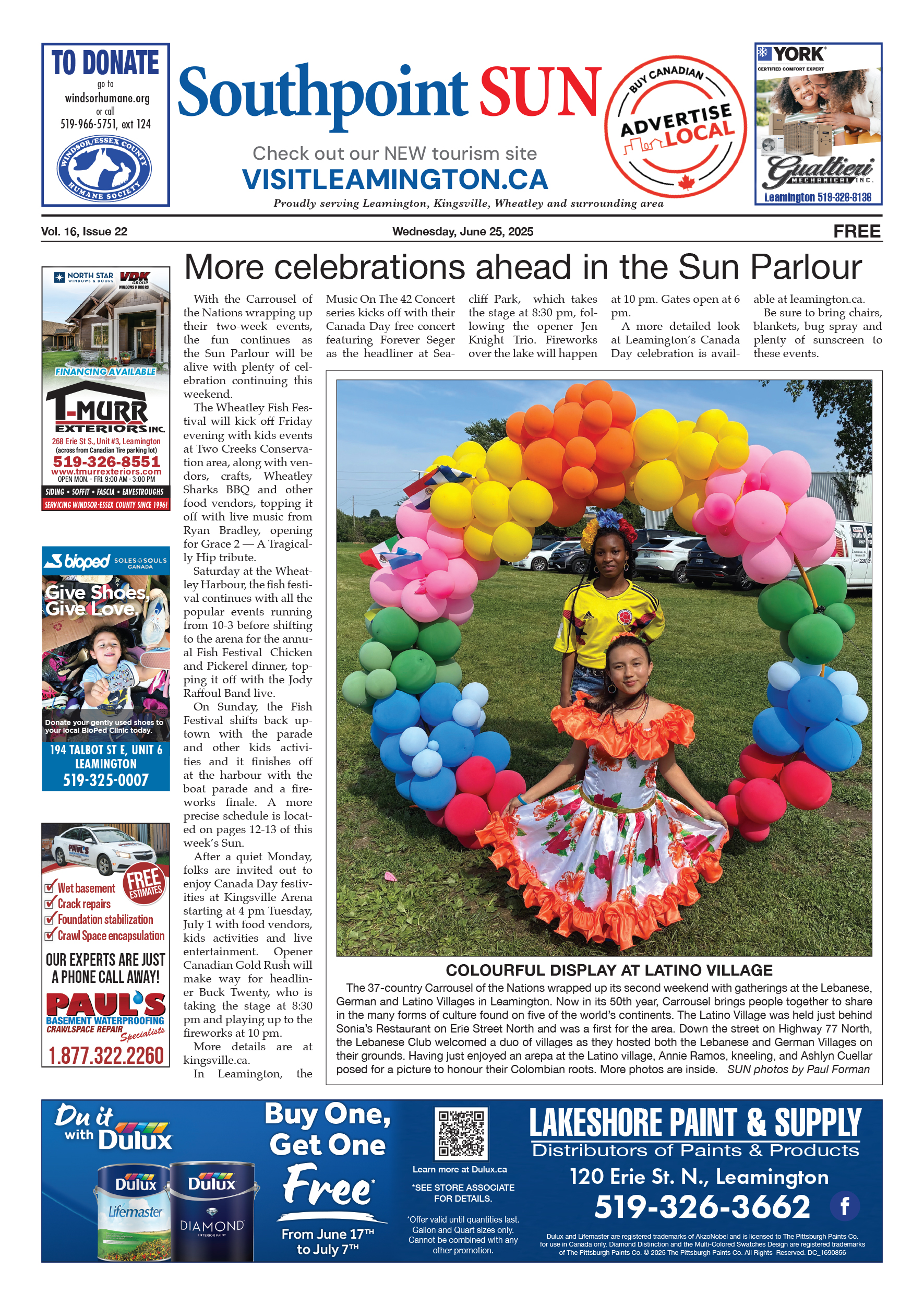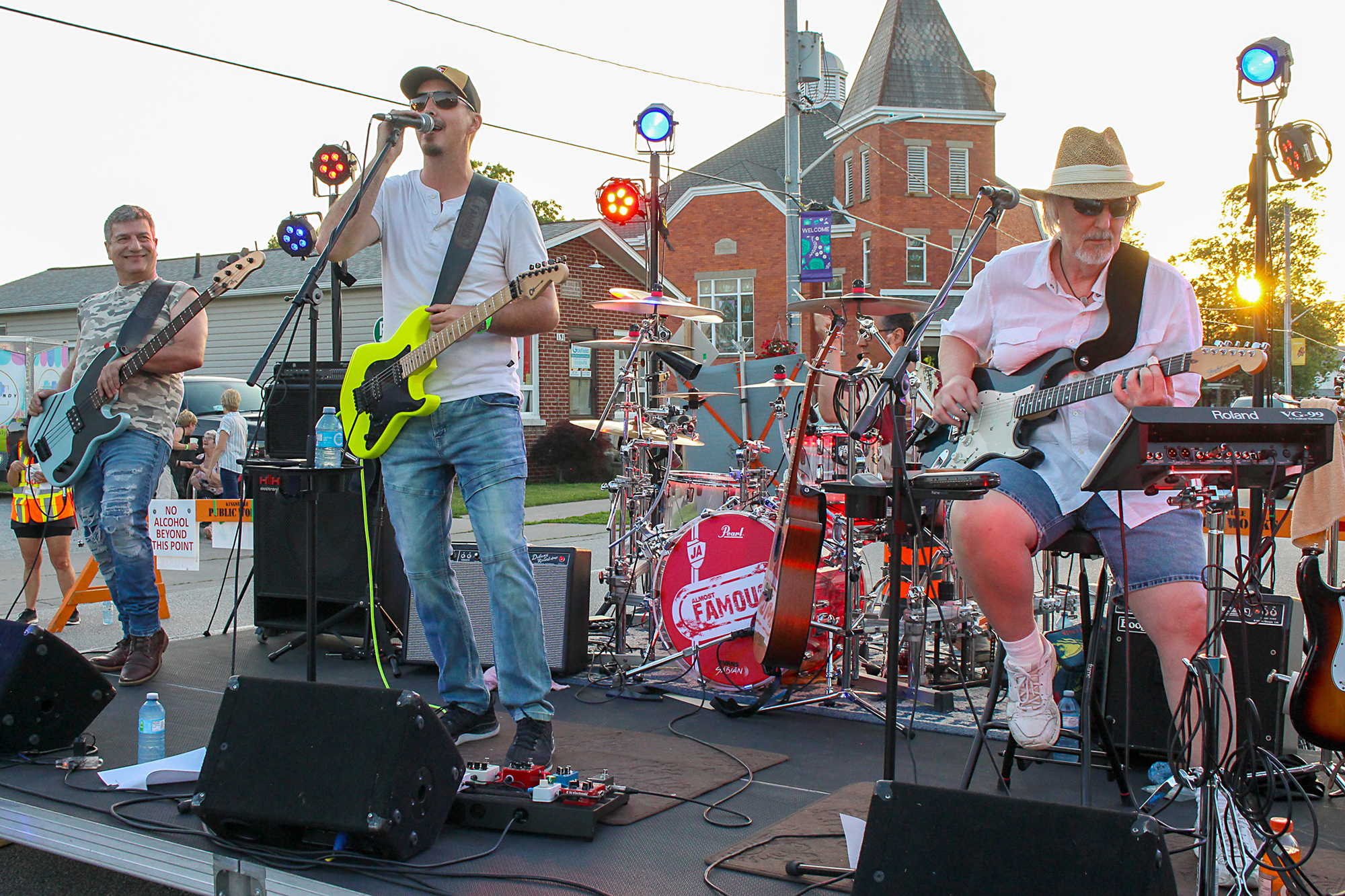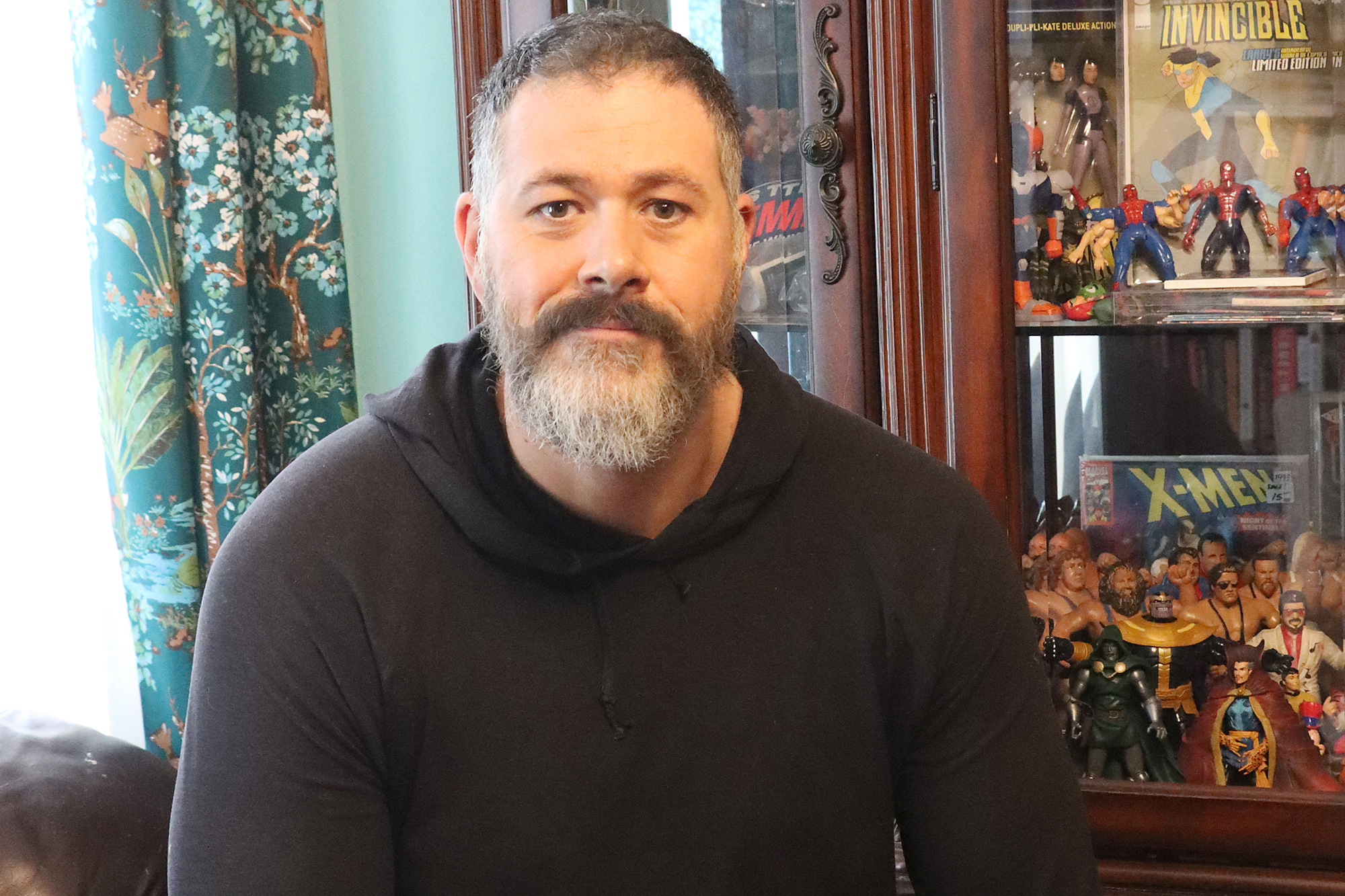St. John’s Anglican Church Annex in Leamington hosted the Respect Forum on Wednesday, October 11 with local first responders, healthcare professionals and clergy — as well as members of the public — attending.
The Repect Forum is part of the Respect Canada Campaign and brings together people from health and social services, all levels of government, universities, community organizations and peer support organizations in a meeting setting to talk about their organizations and the challenges they face, paving the way for collaboration.
The organization has been hosting Respect Forums since 2016.
Retired Lt. Colonel Morris Brause organized and hosted the Leamington event, which also included guest speakers from healthcare, police and fire, who spoke on PTSD and its effects on their lives and careers.
Lakeshore Deputy Fire Chief Andre Marentette and Windsor Police Constable JP Karam both spoke about an incident in downtown Windsor on March 21, 2018 in which Marentette — then a Windsor Police officer — shot and killed a Windsor man who was attacking Karam with a knife.
The two spoke about the incident and played a video of their experience that day and the months that followed.
Marentette’s PTSD journey was long and difficult, and he eventually left the police force to join the Lakeshore Fire Department full time.
Karam and Marentette spoke well together as the former police partners talked about the process in which the incident was dealt with and the coroner’s inquest that followed.
“It’s not the incident on its own,” said Marenette. “It’s the culmination of everything leading up to that.”
And the two partners had different reactions to the fallout from that day, both speaking on the subject and sharing their experience with those in attendance.
Another guest speaker, Marcy Resendes, who authored a book — If The Brain Could Stop What They Eyes Have Seen — about her PTSD journey, spoke to the crowd about an incident while working in the local Emergency Room as a triage nurse and how that incident — combined with many others — brought on nightmares.
Resendes, who’s been a registered nurse for 24 years, said she felt like she had the flu, but it turned out to be much more than that.
“I knew something wasn’t right,” she said. “But I didn’t know what was wrong.”
The nightmares after the incident — which involved a man coming into E.R. who had been crushed between an excavator and a giant concrete block — got to the point where she couldn’t function.
“I kept dreaming about a sink in the emergency room overflowing with blood and that blood just wouldn’t stop flowing,” she said.
She talked about just trying to forge ahead and do her job, but eventually had to take time off work and was diagnosed with PTSD in January, 2019.
The journey from there has been difficult but Marcie is taking each day as it comes and acknowledges there will be good days and bad, saying “It’s really important to enjoy the good days,” she said. “If you can get out, get out.”
The general theme about getting the right help from the right people was evident in all three speakers who talked about their PTSD journeys.
Katelynn Dunwoody, who is a Victim Specialist for the Essex County OPP Detachment, spoke briefly on the resources available and her department’s work on dealing with victims of crimes and how that has evolved over the years.
The final speaker — Morris Brause himself — did a tour in Bosnia in 1994 and was the commanding officer for a unit of 450 battle-group soldiers.
The atrocities he saw there haunted him for many years and coupled with a failed marriage when he arrived home, he started to withdraw from society.
“I’m a tough old soldier,” he said. “I would literally start having nightmares.”
His nightmares lasted from 1994 to about 2003.
Brause said his motto was “soldier on” and he felt that he could get help but was certain he’d end up on medical leave and be forced out of the military.
In 2003, he says, he finally “crashed” and went on full-time counselling, put on leave and regular medication.
After some time, he was able to re-join the military and did a tour of Afghanistan as a commanding officer and also commanded the Essex-Kent Scottish Regiment before retirement.
He’s been involved with the Respect Forum since 2016.
His final message is that you can bounce back from PTSD if you give it enough time and effort.
“With good support, this old soldier got back in the saddle,” he said.









































